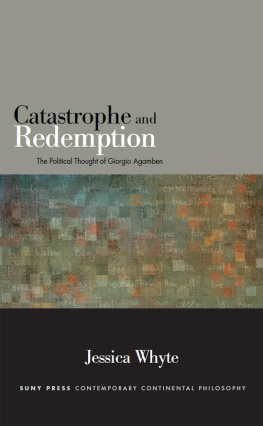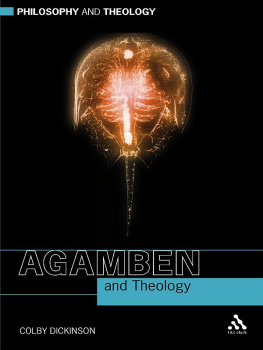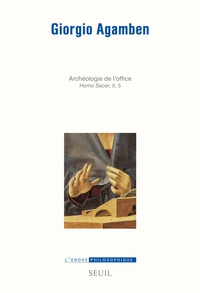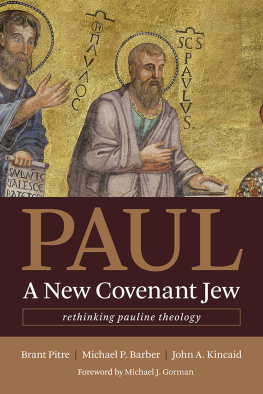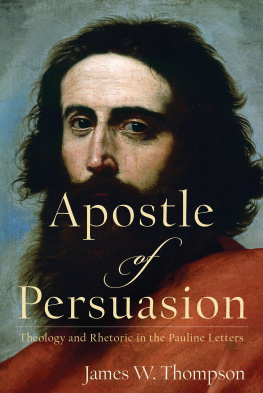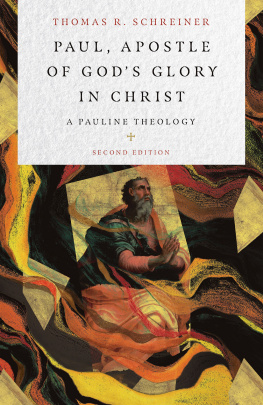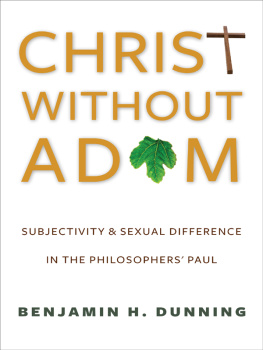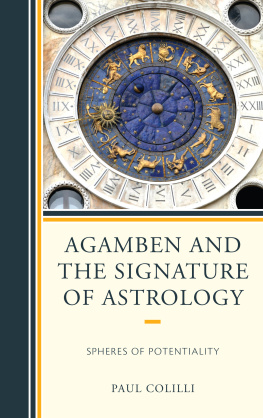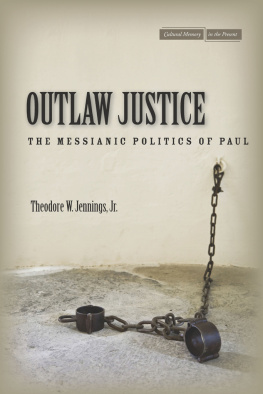PAULS SUMMONS TO MESSIANIC LIFE
INSURRECTIONS: CRITICAL STUDIES IN RELIGION, POLITICS, AND CULTURE
Slavoj iek, Clayton Crockett, Creston Davis, Jeffrey W. Robbins, Editors
The intersection of religion, politics, and culture is one of the most discussed areas in theory today. It also has the deepest and most wide-ranging impact on the world. Insurrections: Critical Studies in Religion, Politics, and Culture will bring the tools of philosophy and critical theory to the political implications of the religious turn. The series will address a range of religious traditions and political viewpoints in the United States, Europe, and other parts of the world. Without advocating any specific religious or theological stance, the series aims nonetheless to be faithful to the radical emancipatory potential of religion.
For a complete list of books in the series, see .
PAULS SUMMONS TO MESSIANIC LIFE
Political Theology and the Coming Awakening
L. L. WELBORN
Columbia University Press
NEW YORK

COLUMBIA UNIVERSITY PRESS
Publishers Since 1893
NEW YORK CHICHESTER, WEST SUSSEX
cup.columbia.edu
Copyright 2015 Columbia University Press
All rights reserved
E-ISBN 978-0-231-53915-9
Library of Congress Cataloging-in-Publication Data
Welborn, L. L., 1953
Pauls summons to messianic life : political theology and the coming awakening / L. L. Welborn.
pages cm. (Insurrections: critical studies in religion, politics, and culture)
Includes bibliographical references and index.
ISBN 978-0-231-17130-4 (cloth : alk. paper) ISBN 978-0-231-17131-1 (pbk. : alk. paper) ISBN 978-0-231-53915-9 (e-book)
1. Bible. Epistles of PaulCriticism, interpretation, etc. 2. Bible. Epistles of PaulTheology. 3. TimeReligious aspectsChristianity. 4. HistoryReligious aspectsChristianity. 5. Agamben, Giorgio, 1942 . I. Title.
BS2650.52.W44 2015
227'.06dc23
2014033472
A Columbia University Press E-book.
CUP would be pleased to hear about your reading experience with this e-book at .
COVER DESIGN: ALEX CAMLIN
COVER IMAGE: HEAD OF AN APOSTLE BY PETER PAUL RUBENS ALINARY ARCHIVES/CORBIS
References to websites (URLs) were accurate at the time of writing. Neither the author nor Columbia University Press is responsible for URLs that may have expired or changed since the manuscript was prepared.
For my sons, Locke and Mark, and for my rabbi, Bernard Barsky
Das kommende Erwachen steht wie das Holzpferd der Griechen im Troja des Traumes.
Walter Benjamin, Das Passagen-Werk, Konvolut K
Owe no one anything, except to love one another; for the one who loves the other has fulfilled the law. For the commandment, You shall not commit adultery, You shall not kill, You shall not steal, You shall not covet, and if there is any other commandment, it is recapitulated in this word: You shall love your neighbor as yourself. Love does no wrong to the neighbor; therefore, love is the fulfillment of the law. And this knowing the kairos, that the hour has come already for you to awaken out of sleep, for now our salvation is nearer than when we first believed. The night is far advanced, the day is drawn near. Let us therefore cast off the works of darkness, and let us put on the armor of light. As in the day, let us conduct ourselves decently, not in revelries and drinking bouts, not in sexual excesses and debaucheries, not in quarreling and jealousy. But put on the Lord Jesus Messiah, and do not make provision for the flesh, toward desires.
Romans 13:814
CONTENTS
IF THE IMPRESSION does not deceive, Pauls letters have acquired a new legibility in recent years. This is the case not only with respect to accessible writings, such as 1 Thessalonians and 1 Corinthians, letters determined by concrete situations, but also with respect to Pauls last and most visionary composition, the epistle to the Romans. That this is so is due not merely to advances in knowledge of the historical context, though these have been considerable, nor to the overcoming of anachronistic frameworks of interpretation imposed during the Reformation, though the new perspectives have been salutary, but to something deeper, something historic, something essential to the crisis of our time, of which Karl Barth already had the intuition. From somewhere, a flash of light has made the characters of Pauls ancient text legible, and is stirring hope.
The index of this phenomenon is the sudden preoccupation of a group of philosophers (Jacob Taubes, Alain Badiou, Giorgio Agamben, Slavoj iek, Kenneth Reinhard, Eric Santner), none of them Christian, several of them avowed Marxists, with the letters of Paul. Why should secular, indeed irreligious philosophers turn to the apostle Paul and find in him the embodiment of the figure of the militant, a truer type than the figure of Lenin installed in the imagination of philosophers at the beginning of the twentieth century? Merely to raise this question is to penetrate to the core of the phenomenon of Pauls present legibility. For these philosophers may be said to be acutely aware of the threat that hangs over the present moment, a danger described variously as a state of exception or biopolitics by Agamben and as the absolute sovereignty of capitals empty universality by Badiou, but a danger upon whose dehumanizing consequences all are agreed. In a world where political processes are increasingly controlled by capital, and where social relations are mediated by images, there is the danger not only that the masses may become, as they always have become, the tools of the ruling class, but now, more seriously, that human sociality may be alienated from itself by the global triumph of a digital machine capable of manipulating perception and controlling memory through the invincible logic of the integer. The supreme danger is that the residue of the other, the neighbor, upon whose alien reality my own humanity depends, may be fully metabolized by the perpetual motion of capital, which homogenizes all identities. Or, to speak in the language of our tradition, the danger now exists that the Judeo-Christian sense of social obligation embodied in the commandment You shall love your neighbor as yourself will be entirely swept away by a resurgence of that structured inequality which was the basis of the political economy of the Roman Empire.
It is the sense of Paul as a contemporary to a perilous moment for humanity that has drawn the philosophers to the apostle and has given his texts their new legibility. Paul wrote his epistle to the Romans at the midnight of the first century, the reign of Nero. The sole sovereignty of the successors of Augustus was an ongoing state of exception in which politics perished, a new structure of power constituted and reconstituted by the imposition of various degrees of dependent subjecthood and, in the last instance, by terror. The wealth of the emperor and his syndicate depended upon the vigorous exploitation of the resources of the provinces and upon the enslavement of a significant portion of the populationthe latter institution maintained by the cruelty of crucifixion. By the age of Nero, spectacle had become an all-encompassing feature of social experience, which not only blurred the boundary between the real and the representational, but threatened the expropriation of human sociality itself. The mass burials uncovered by archaeological excavations outside the gates of Rome are a grisly testimonial to the dehumanization of precisely that segment of the population from which Paul and other evangelists recruited the members of their messianic assemblies. The philosophers who, in a moment of danger, seek to link their present to the apostles past have glimpsed in Pauls messianic faith a spark of hope.
Next page


